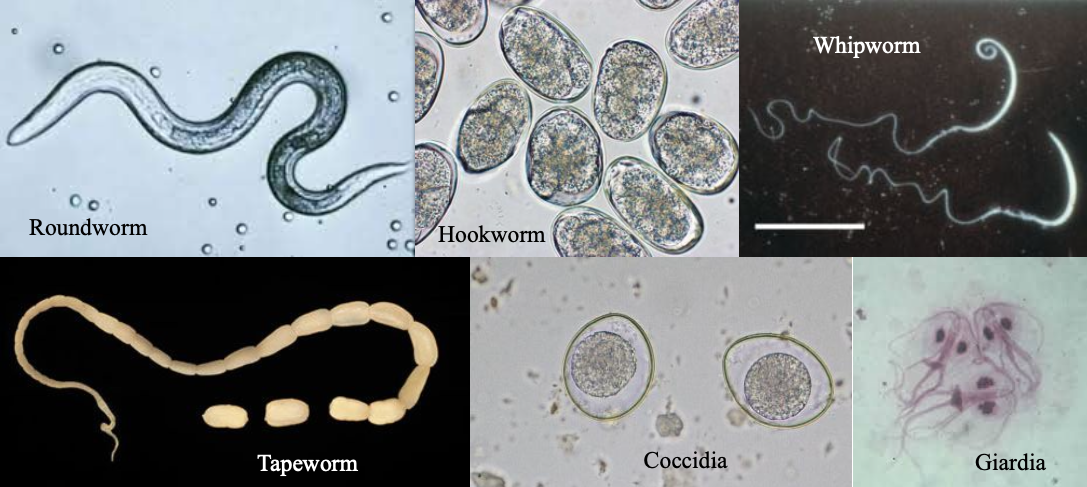We thought it would be helpful to explain our near obsession with poop, which we also refer to as feces or stool. Our veterinarians recommend testing poop for two reasons:
1) A dog or cat has symptoms that may be attributed to intestinal parasitism.
2) For routine screening to identify asymptomatic carriers of intestinal parasites.
It might be obvious why we screen for intestinal parasites in symptomatic pets, but why screen for asymptomatic carriers?
A very important part of pet stewardship is to control intestinal parasitism. Dogs and cats can be asymptomatic carriers and serve as a source of environmental contamination with parasite eggs (ova) or cysts that are shed in stool.
Subsequent infection with intestinal parasites can cause symptoms such as diarrhea, weight loss, anemia, and vomiting in our pets. The more significant the parasite burden, the increased likelihood of severe disease.
Some intestinal parasites of companion animals can infect humans (zoonotic parasites), mostly through exposure from a contaminated environment.

What are the common intestinal parasites of dogs and cats?

The DOGPARCS study: Detection of gastrointestinal parasitism at recreational canine sites in the USA (June 2020)
3,000 fecal samples were obtained from thirty metropolitan areas (including Atlanta) and 288 dog parks. Samples were collected with the owners consent and these owners also gave information about whether their pet(s) were given heartworm/intestinal parasite control medication.
85% of parks sampled had at least one infected dog.
1 in 5 park-attending dogs was infected with intestinal parasites.
Giardia was the most commonly detected parasite, but hookworms, whipworms, or roundworms were found at almost half of the parks visited. Hookworms were especially common in the South.
Owners reported using heartworm/intestinal parasite preventatives in 68.8% of park-attending dogs. Those dogs receiving a preventative were significantly less likely to be infected with nematodes.
The fact is that intestinal parasites are very common in dogs and cats, which is why parasite control strategies and testing are recommended. Effective parasite control has revolutionized the human-animal bond over the last several decades, opening the door to pets to live in our homes, sleep in our beds, and enjoy better health and quality of life.
Fortunately, many monthly oral or topical heartworm preventatives provide intestinal parasite control, but no product is 100% efficacious nor protects against every potential intestinal parasite. The most common reason to see breakthrough roundworm or hookworm infection is when pet owners forget to give monthly preventatives, so mark your calendars or set your reminders!
Dr. Sharon Nath

